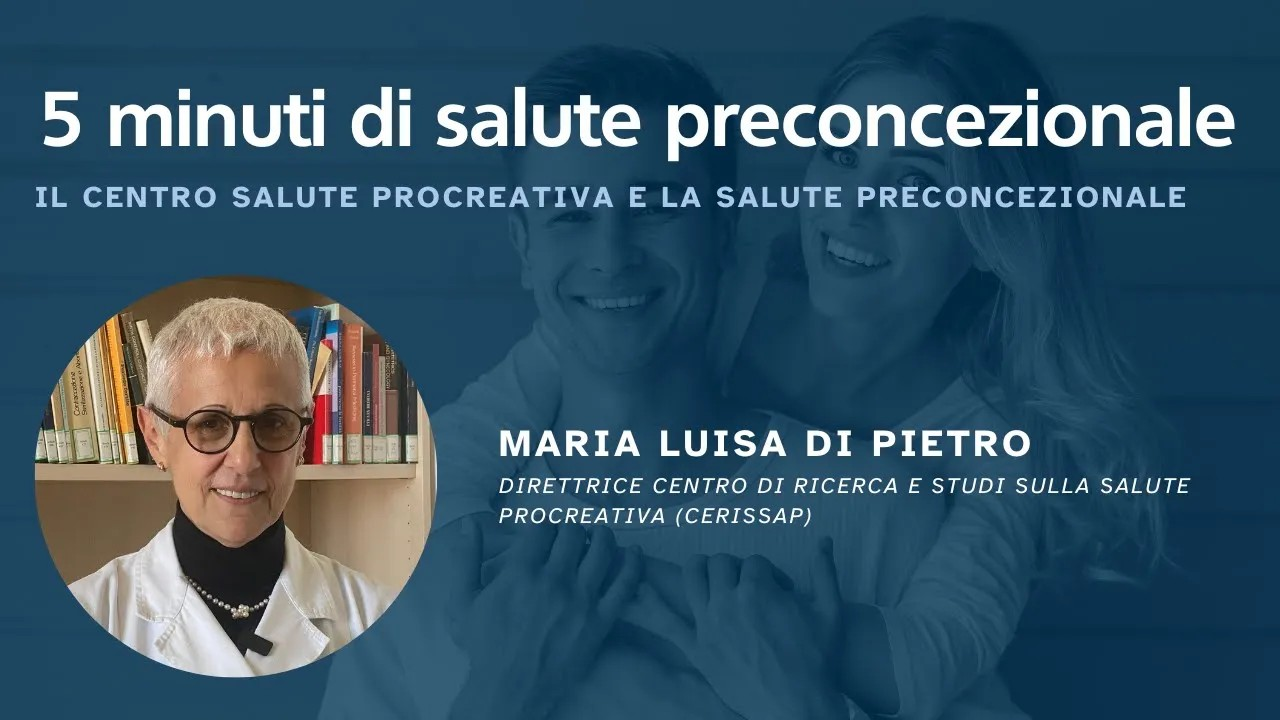Introducing the 5 Minutes of Preconception Health Series
The Centre for Research and Studies on Procreative Health was founded in 2020 within Università Cattolica del Sacro Cuore. In what sense does the Center deal with procreative health? The research and training work is aimed at promoting procreative health, i.e. on all those possible interventions that can help people to take care of themselves and to carry out their motherhood and fatherhood project in a conscious and responsible way.
Why this attention to procreative health? Because we have become aware of some phenomena that are becoming more and more accentuated and on which it is necessary to intervene: an increase in conditions of sterility and infertility; inattention to preconception health; the widespread disesteem for motherhood and fatherhood; the growing denatality. From 2019, when there was a fertility rate of 1.29, it reached a rate of 1.24 in 2020 and then rose again in 2021 to 1.25. This means that in 2021 there were so few births that for every 7 births, 12 deaths were recorded, no longer ensuring generational turnover.
What are the objectives of the Centre? Training and information, especially for the younger generations. Information alone is not enough, because the challenges to be faced are complex choices that concern unhealthy lifestyles and health-risk behaviors. A training intervention is therefore necessary, which requires a continuous and personalized educational approach. To do this, however, we must first of all know what exists: it is necessary to study what are the lifestyles, the risky behaviors of the female and male population of childbearing age, in order to identify - in the light of the data collected - what the intervention strategies may be. Once implemented, the results will have to be monitored in order to correct the strategies themselves. The Centre for Research and Studies on Procreative Health also has another role, namely to accompany and support the decisions that are taken at the level of the Government and the Regions, especially with regard to policies in favour of the family, the birth rate and for young people.
Leggi anche
-
Climate change and birth rateClimate change and fertility; A general topic for a particular problem that is still little studied and little investigated. We are all realizing how much climate change impacts our lives and how necessary it is to stem it, but few have carried out an analysis of the correlation between this phenomenon and the ability to procreate. We talk about it with Prof. Walter Ricciardi.
-
Welfare and birth rateThe Welfare State, developed since the nineteenth century to mitigate social risks such as unemployment and illness, has contributed significantly to the lengthening of the average life expectancy and to the change in the role of women in society. This change has influenced the traditional view of the family and has made it more difficult for women to reconcile work and family, also affecting historical birth rates. Prof. Gilberto Turati explains the current situation and the dynamics underlying it.
-
Andrological preventionWhen we talk about andrological prevention, we are probably entering a field unknown to many. Contrary to what happens for the female counterpart. In fact, the average age of the first gynecological examination is 15 years, unlike what happens in males where the first andrological specialist check-up often comes at a much older age, at the onset of clinical symptoms or when trying to get pregnant. Why is prevention important in the andrological field? This is what Dr. Carmine Bruno explains.
